
Director Jaclyn Bethany on ‘Indigo Valley’ and her journey into filmmaking
Jaclyn Bethany is no stranger to the world of filmmaking, as she’s been working as an actor since she was 24. But for her, it’s more than just acting. As a filmmaker, Bethany recently created her latest feature Indigo Valley, working as director & writer, as well as actor.
The Emmy award-winning filmmaker does anything but limit herself to just one type of role. Telling unique and interesting stories, Bethany tries to push the boundaries of filmmaking through her writing. As an actress, she also knows how to be vulnerable and lets her films tell touching, emotional stories.
We spoke with Jaclyn Bethany about Indigo Valley and her approach to filmmaking.

Tell us about your journey into filmmaking. What did you do before film?
I suppose I came to filmmaking “late” as in I didn’t always know I wanted to work in film. I went to college for theatre and then spent a few years acting, performing musical theatre, art directing, writing and actually — working in fashion.
It wasn’t until I was 24 that I stepped on my first film set as an extra. From that moment something was sparked within me, the energy on set was unlike anything I had experienced before. I spent the next two years writing and producing short films, working on sets in the South and in New York City — really learning the ropes from the bottom up.
Then I moved to London where I studied Screenwriting and decided to apply for AFI for Directing. The short I applied with was the first film I’d ever directed. It’s called Between Departures and it’s on Amazon Prime!
Is there any particular film or TV show that inspired you to become a filmmaker?
From my childhood The Wizard of Oz definitely inspired me. My father knew every word. Also, Annie directed by John Huston. I love that film, because you can just tell that the actors are having the time of their lives. Carol Burnett, Tim Curry and Bernadette Peters performing “Easy Street” – I mean, come on. Anne Reinking, Albert Finney… I sometimes still watch it if I am having a bad day.
One film that I often return to is Shekhar Kapur’s Elizabeth. I watched it at first when it was released, when I was nine years old and I remember being totally struck by seeing a young woman (Cate Blanchett as Elizabeth) lead this clearly ambitious and bold film.
I thought I might do something like that one day. In retrospect, I loved that it was made by an Indian filmmaker with this illustrious international cast depicting an iconic British queen. Such an interesting melting pot of cultures reflected visually.

Who are your current influences?
I really love the work filmmakers such as Josephine Decker, Sarah Adina Smith, Amanda Kramer, Cate Shortland and Joanna Hogg are doing… Classically Barbara Loden, Gena Rowlands, Liv Ullman… But, all these women have really interesting, diverse bodies of work.
I think as a multi-hyphenate I admire women that self-generate material such as Brit Marling, Miranda July, Micaela Coel, Phoebe Waller-Bridge and Cate Blanchett… but those are obviously huge examples.
I am really inspired by my friends Greta Bellamacina (who also has a feature Hurt by Paradise coming out this month) and Mary Neely. I think my ultimate filmmaking icon is Jane Campion mixed with the prolific work of Bergman and Cassavetes. A recent movie I saw that I loved is Mati Diop’s Atlantics (on Netflix, from Cannes last year).
What was the first project you worked on, and what did you learn from it?
Well, I had a few early experiences on set as an actor where I had no idea what I was doing and learned how a set worked from observing. One of my first on-set experiences was in the movie Trumbo which is set in the 1940s at the height of Golden Age Hollywood.
I was hand-picked for a scene with Diane Lane and I was extremely nervous. I have a good period look I guess, but in the end, my scene was cut, haha. It was a big glitzy party scene by a pool and I remember Diane Lane asked for an apple box to sit on and I had no idea what that was.
It is truly a blessing having small roles in big films like that because you learn watching the director. Jay Roach directed that. I think it was ultimately through these accumulated experiences that I really became intrigued with learning more about the craft of directing.

Do you have any experience with mentors? If yes, would you recommend them for up and coming filmmakers?
A little bit, yes. I think I’ve sort of accidentally come upon mentors. I am really inspired by women who are a decade or more older than me. Like women in their 40s. I was always the girl in eighth or ninth grade who fawned over the high school seniors who had lead roles in the school plays. I wanted to be just like them.
So in that way, I’ve sort of aspired and maybe accidentally sought out mentors. I wrote the role of Helen in my digital series The Rehearsal with the actress Tina Benko in mind. Tina was actually my teacher in college and I really admire her career. She won the Emmy for this performance. So that really was a full circle moment.
I am not sure I believe in filmmaking mentors because I think it’s more about working with people and learning from them, experimenting and collaborating. Every director is so different. I think it’s more interesting learning from another facet of the industry you are not so directly involved in.
I have had some really fruitful, mentor-like relationships with producers, most recently Rhianon Jones of Neon Heart Productions. We have worked together on two projects so far and she supports really rad, independent female-driven work. I would recommend mentors, sure, but it takes some digging to find your people.
Would you consider yourself an indie filmmaker? If yes, do you think you’ll ever stop being an indie filmmaker?
I consider myself an artist. I don’t really consider myself indie until someone brings it up and reminds me. I make indies, but I work in narrative-based visual storytelling, I work in theater, I work in performance, I write and create. I am open to telling a story in any shape and form if that takes me beyond just being an indie filmmaker and into a larger commercial sphere or a new audience I am totally open to it.

Walk us through your creative process.
I think it depends on the project. But it always starts with an idea. A character. A ripple of a story. It can even be an image that sparks something. From there it’s about rallying people around the idea and forming collaborators that speak the same language, but can also bring their own ideas and opinions to the project.
From there it grows. This sounds really cerebral but it can also be contentious. And that’s beautiful – when you create something that people respond to, that makes people think. It leaves a lasting impression on the artists who work on it. Or at least that is my goal.
Then after the shoot, I struggle with a kind of deep artististic depression. Almost like postpartum. As if the film is my baby and I can’t connect with it or work on it anymore because it’s over and I have had to let it go. But then I remember that just because we ended shooting means it is far from over. There’s post-production, then there is finding an audience. Look at Indigo Valley just coming out nearly two years later.
Do you listen to any music to help inspire you to create?
Yes, I often listen to music that informs the script so it really depends on what project I am working on. Sometimes I listen to the soundtrack to Amadeus because it’s perfect and inspires me to create. While working on my most recent film I listened to music by Ben Salisbury and Fatima Al Qadiri – dark, brooding, eerie. Son Lux, Cigarettes After Sex, Phoenix & Air are constantly on my creative playlist.
I’m obsessed with Carter Burwell’s score for Carol. I also think Dario Marionelli and Ilya Demutskiy are superlatively brilliant composers and I listen to them often.
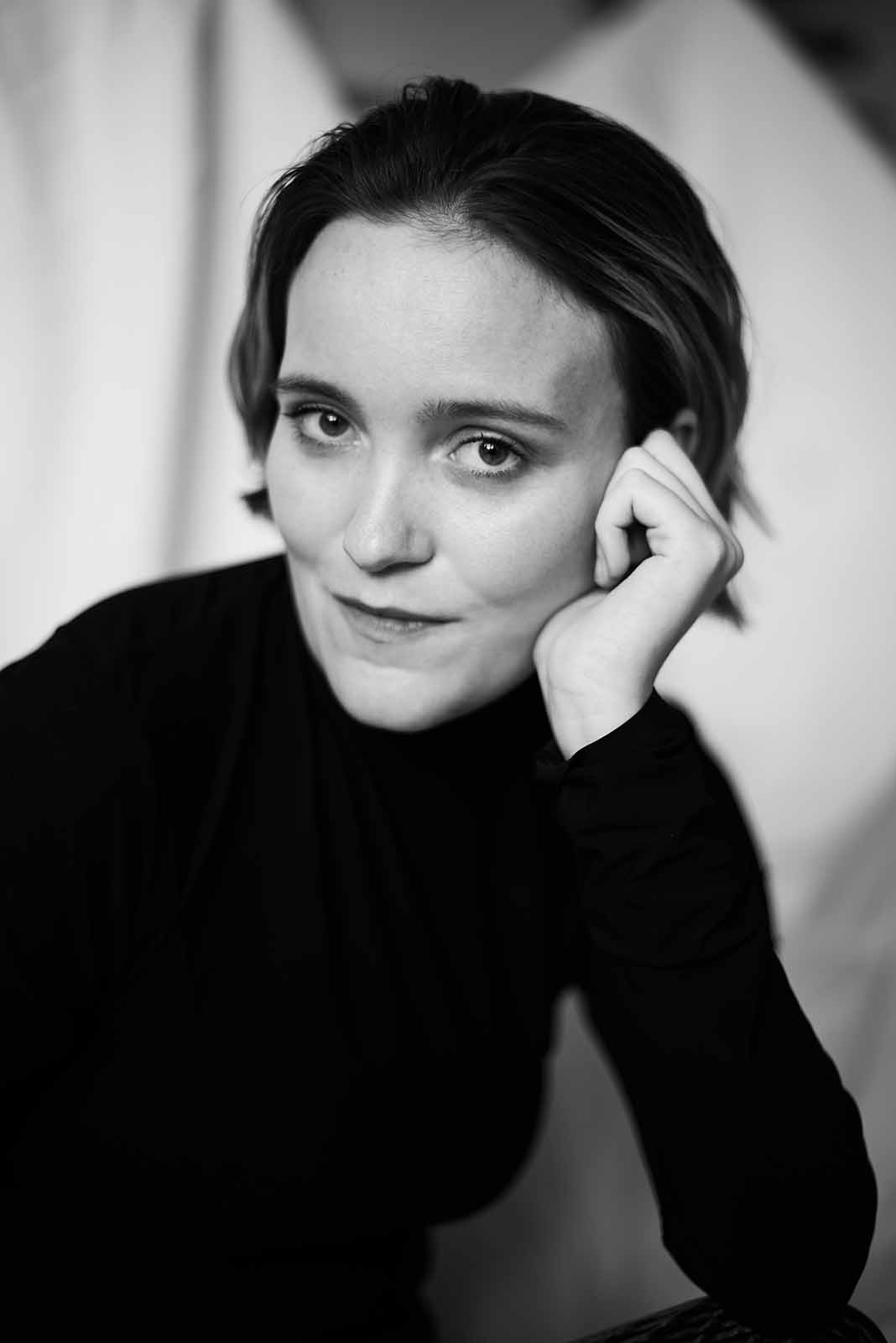
Is there any part of the filmmaking process you favor over the others?
I think actually shooting is an amazing feeling. There’s so much work that goes into getting there and then the process of shooting can be so magical, but fleeting. I also really enjoy casting and editing, those are two elements where you can really see the film come together.
You started in the industry as an actor, and then transitioned into becoming a director. Was it a natural “next step” for you?
Yes. But I still do both! Both acting and directing simultaneously started early for me – I directed and starred in a version of the musical Annie in my backyard when I was eight years old. Of course, I didn’t do both professionally until many years later. But I think I started out acting because it was more accessible.
I was a really shy kid, very introverted and an only child. Acting/performing gave me an outlet and I would get good roles in school and local productions, so somebody else thought I was good at it. I think that validation as an adolescent and teen can be really life affirming. I found I had a passion early on. It wasn’t until my 20s that I realized that the business of being an actor was extremely difficult.
I didn’t feel seen, I wasn’t even sure if I wanted to be an actor. I felt frustrated so I started writing roles I wanted to play. So, I sort of focused on that, which led to directing. I was always and probably still am, an opinionated actor but also a pretty keen observer of other performers and how they work. That sort of formulated into me becoming a director.
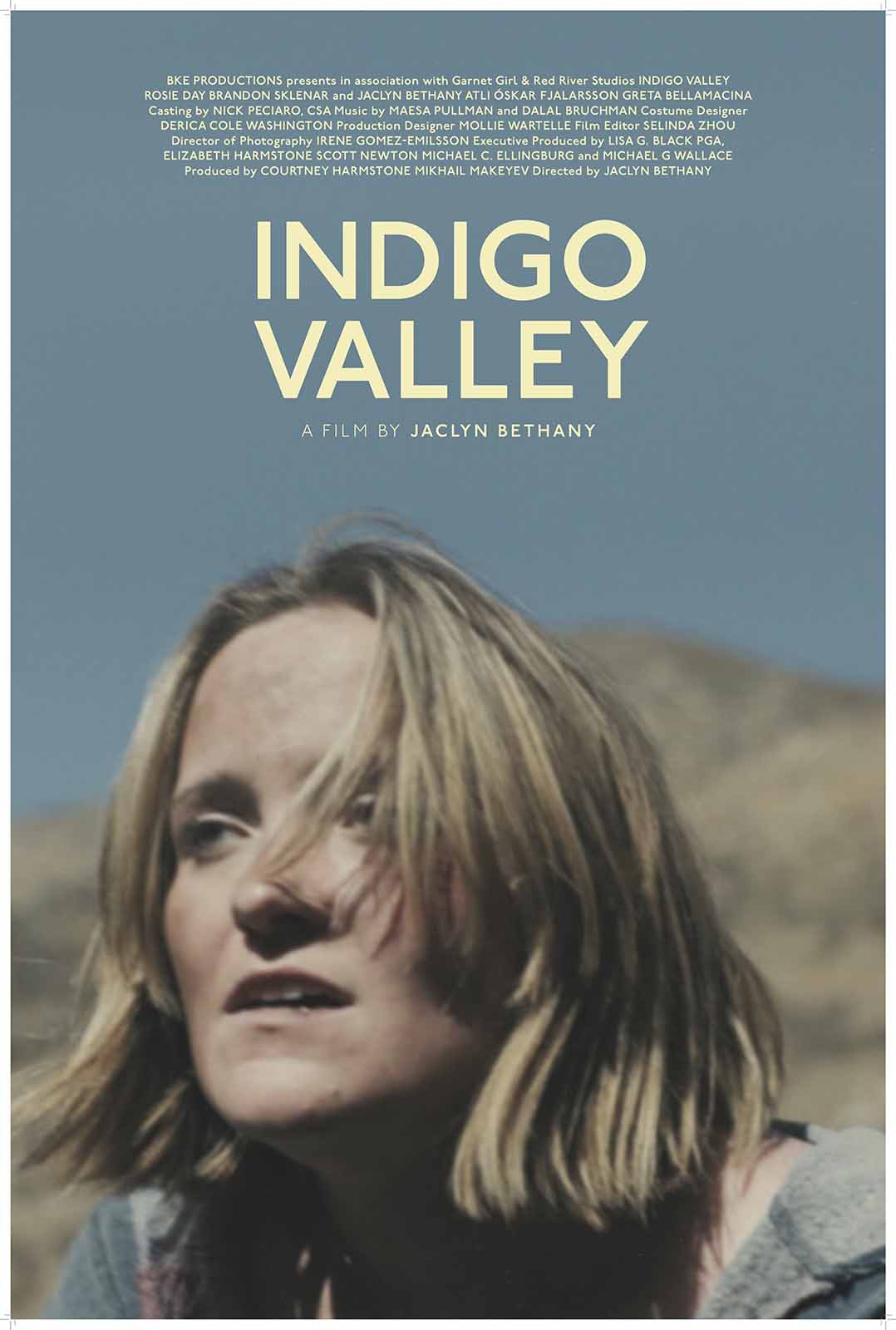
What inspired you to create Indigo Valley?
I think a few things. I was interested in exploring a sibling relationship, specifically a complex sisterhood because I don’t have a sibling. I am fascinated by female relationships. I like the challenge of a classic ménage à trois story – where a third person comes in and messes up a pre-existing dynamic. In Indigo Valley I suppose the third person could be seen as either John or Isabella.
I think the root of these relationships is often seen in classic dramas like A Streetcar Named Desire or Strindberg’s Miss Julie. I am originally from Mississippi, so I will always have some kind of poetic heartbeat flowing through my veins. Although it was difficult for me as a performer, I was drawn to portray a complex, damaged young woman at the center of this story through my character Isabella.
She isn’t particularly sympathetic, which is unique to have as a protagonist. I thought about her complexity and how I could portray that both visually and emotionally. Lastly, I wanted to create a visual identity in proximity to the landscape.
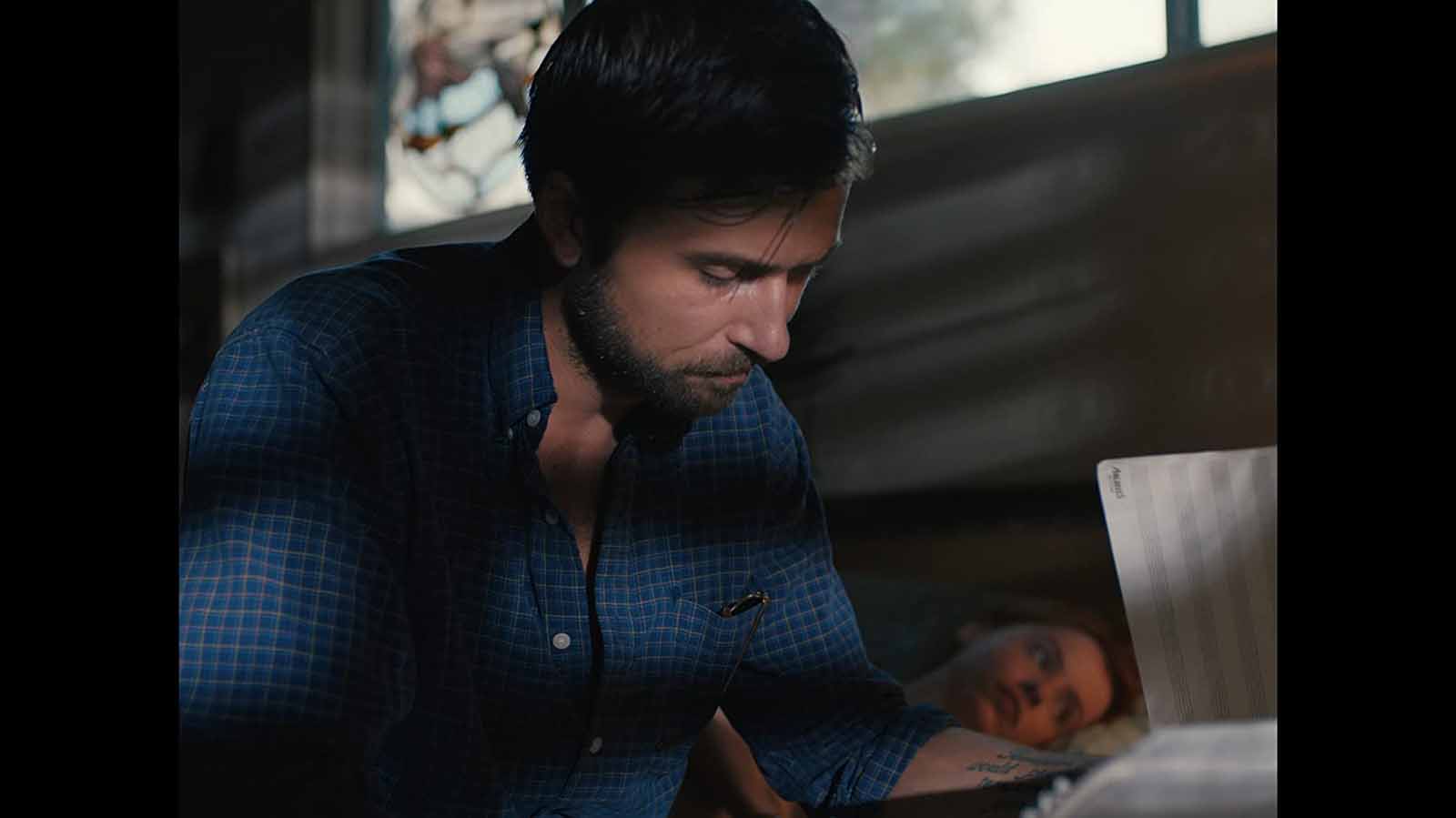
Here, that is the desert. The story is unfolding against these unpredictable natural elements: how time stops when you are there, night flows into day so seamlessly, it goes from blisteringly warm to freezing, the colors of the dirt and sky – all of this affects the characters’ psyche.
What was your experience like on Indigo Valley?
It was intense. I made it in the early fall directing after I had graduated AFI, so I had a young team of collaborators all eager to work on a feature. The story is really centered on these three characters; John, Louise and Isabella.
The film is very dependent on these performances and I was one of them. I had a great working relationship with my DP, AD and close collaborators who were supporting me fully every step of the way. We were shooting long days in the desert. I am really grateful the movie came together the way it did and we made it through the shoot!
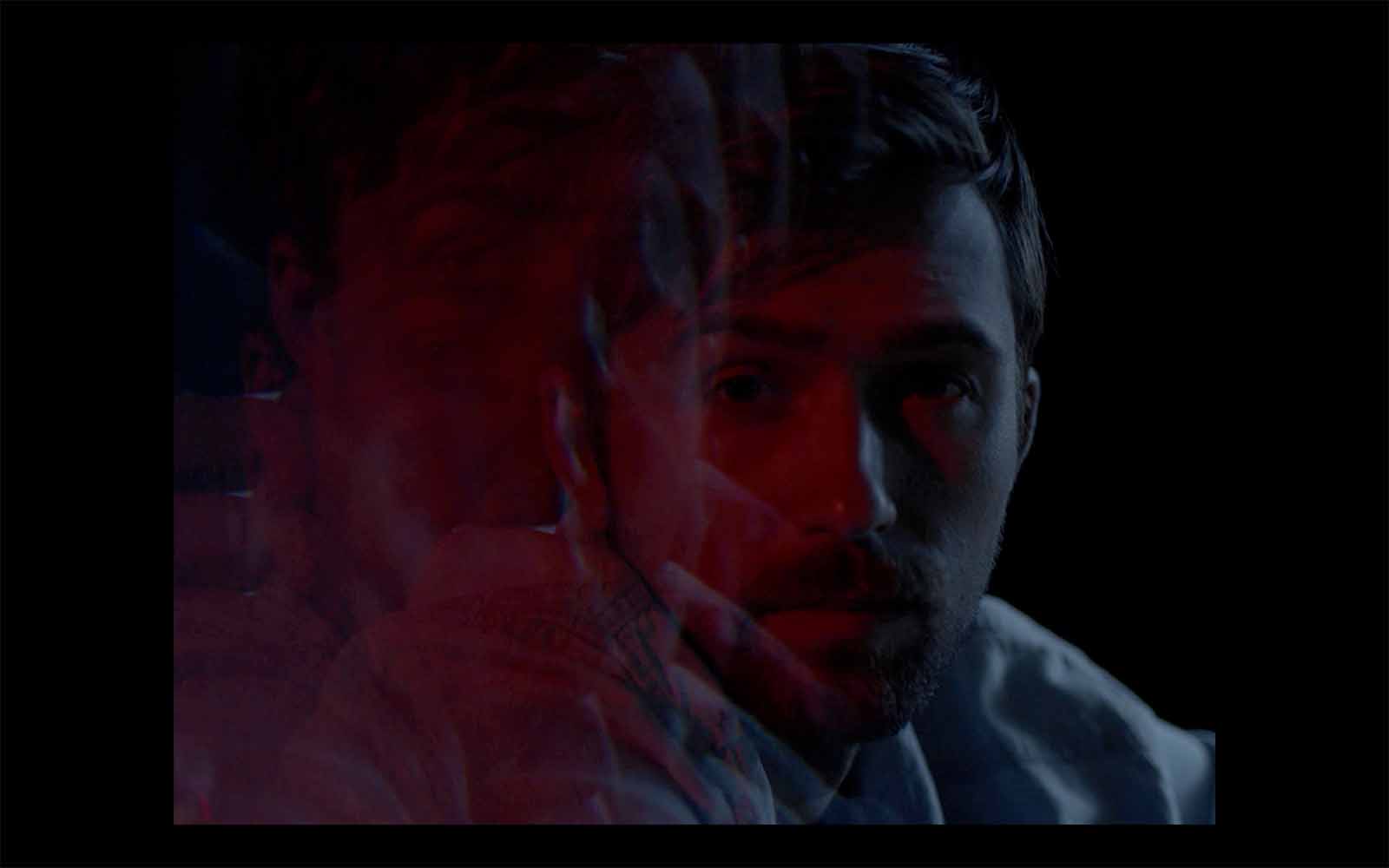
Is there any advice you can give future directors working on their first project?
I would wait until after the pandemic. If there is ever an after. There seems to be a limit on what you can create right now, and I think during this time use that to stimulate your creativity and think outside the box. Gather your toolbox to tackle your first feature head-on when the time comes. Be bold, make mistakes… it’s all worth it.
You tend to wear multiple hats while working on your projects. How do you juggle all those responsibilities?
I think I’ve always been a multi-tasker. I’m highly organized, but also an artistic mess. And I think it’s just a matter of priorities. I am young and right now I don’t have kids or anything so my career is my single priority. So, I have time to really think about what kind of stories I want to tell, and develop/execute each project at whatever stage of development they are to the highest of my ability.
I feel like of course my life will eventually change, but I am able to fully focus on my art right now and that’s a wonderful feeling. Whatever I do, I do it fully and I hope that is something I carry over to my personal life as well.
Do you prefer being in front of the camera or behind it?
I think they complement each other and can both be fruitful experiences. I don’t know if this is a preference but I feel with acting you give up control. You give the best performance or what you think is your best work and in film, it is up to someone else to craft it.
I think in theater it is much more of an actor and performance driven art form. But the way I work is super collaborative with the actors and I feel like on my last project I was one of the ensemble, even though I wasn’t. So I think there is deep value in understanding both, even if sometimes I prefer one to the other. I also think it depends on the project.
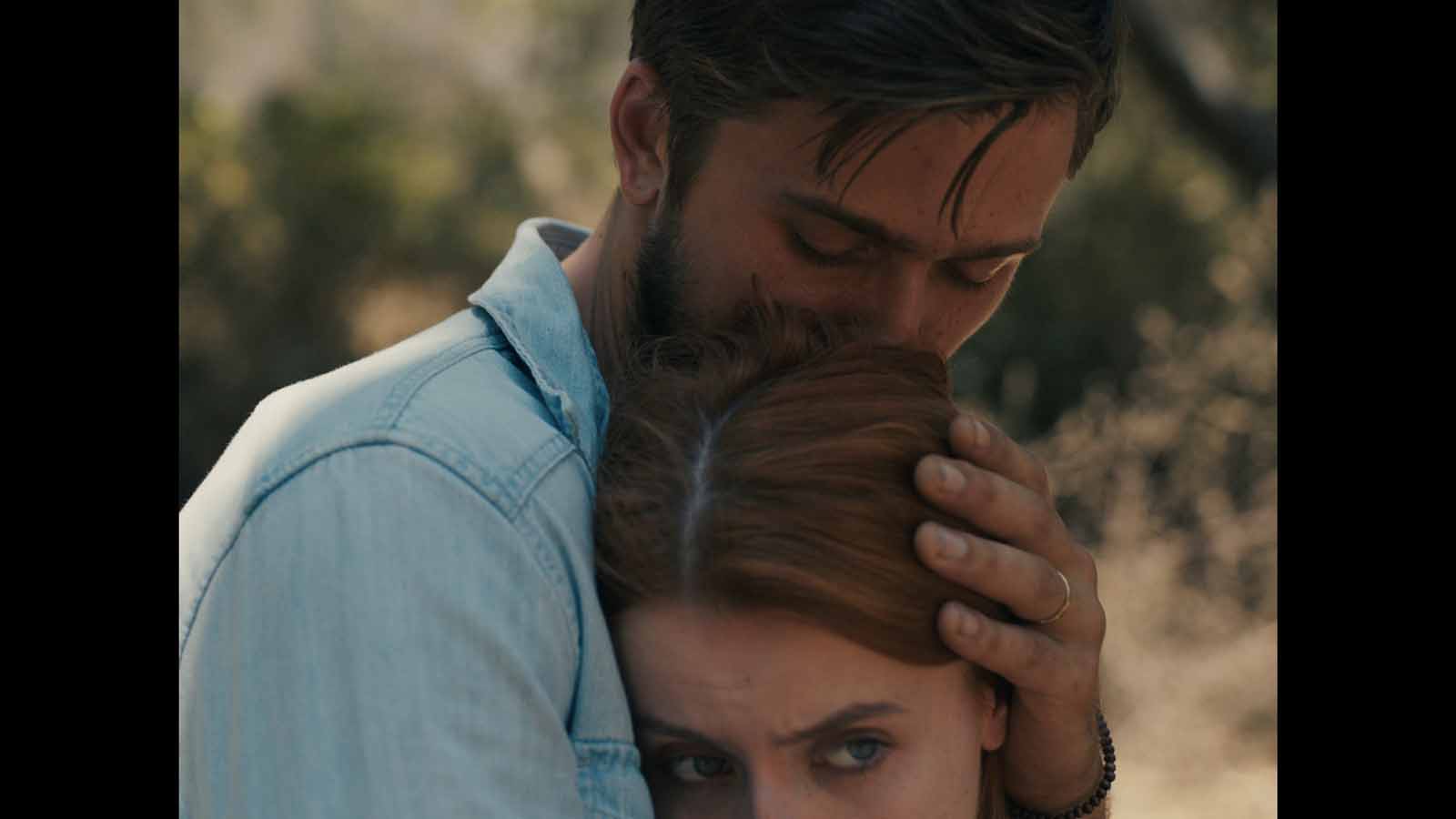
What’s next for you?
I just finished shooting a movie, yes, during the pandemic currently entitled Before the World Set on Fire. It is my favorite thing I have done. It takes place at a small, fictional Northeastern college and follows a young philosophy professor who loses control of an online class where something horrible happens.
In the next section of the story she is blamed (by the institution and her peers) for the incident in the class. It starts out in this online space, the first quarter of the movie takes place on Zoom, then in this eerie college setting and then in nature.
It’s like we are starting out in our current distorted mindset that is online all the time and then it ends up in nature, where in a sense, we as human beings started. And in our daily lives we often forget where we began, our connection to the earth, to nature. And Anya (my protagonist) really fights for that freedom.
Anya is played by Brooke Bloom, in what I think is going to be a very remarkable performance. So I am beginning to edit this. I am also in post on my second feature, Highway One – which is pretty different from the film I just described – it takes place at a New Year’s Eve party and is a story of unrequited love between two women.
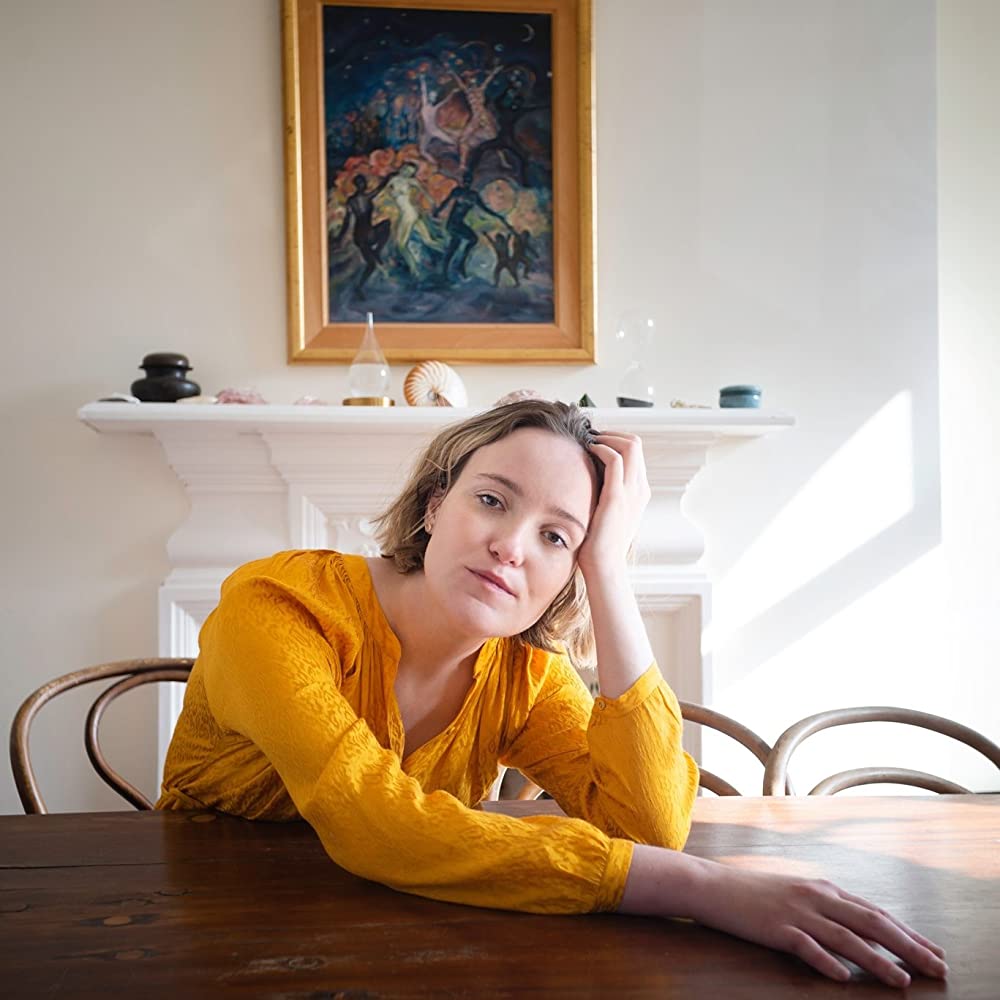
But like Before the World Set on Fire, it was half-improvised and developed with the actors. I’ll have things to share about that project soon.
There are some waves happening possibly with Rehearsal part two. Possibly with a new story. Possibly with developing Fire into a series. I want to write a play and a script where all the women are over 40. That really shouldn’t even be highlighted, I want to write a script for a strong cast of women.
Where do you see yourself in five years?
I hope to have my own show of some kind. I hope to make more films in every capacity. I hope I can get back into theater. I’d love to start a festival and support other female artists and filmmakers. OK, clearly, I want to do everything. Haha!
You were just recently in the web series The Rehearsal, so could we see any more episodic TV from you in the future?
Yes, and we won an Emmy! Hopefully. I would love to direct TV and hopefully there will be a second “season” of The Rehearsal. Television is the new cinema. The opportunity to develop characters and stories are limitless on that medium.

What has been your biggest success and failure to date?
That’s hard because I fail every day. Every project carries its own successes and failures. There’s no such thing as a perfect film or a perfect process. I don’t know if I can pinpoint a specific moment where I felt either of them, because I feel both of these feelings simultaneously and very often.
The desire to create is what keeps me going, but the opportunity to fail is what makes me an artist. I am not scared of failure. It’s a theme I have explored in my work, for example in The Rehearsal. There is also no right way to measure success. I believe it’s valued on personal and artistic happiness, not by awards, or notoriety or any of that. Because those things are fleeting and unpredictable.
If any director could direct the story of your life, who would you choose and why?
Agniezska Holland, maybe. I really love her work – it’s bold, but also fueled by cultural/historical intrigue. She seems to handle scope very well. I don’t mean my life has a huge scope, haha, but I think of the South as it relates to me, and that’s a very specific place. Also because The Secret Garden was one of my favorite films growing up.
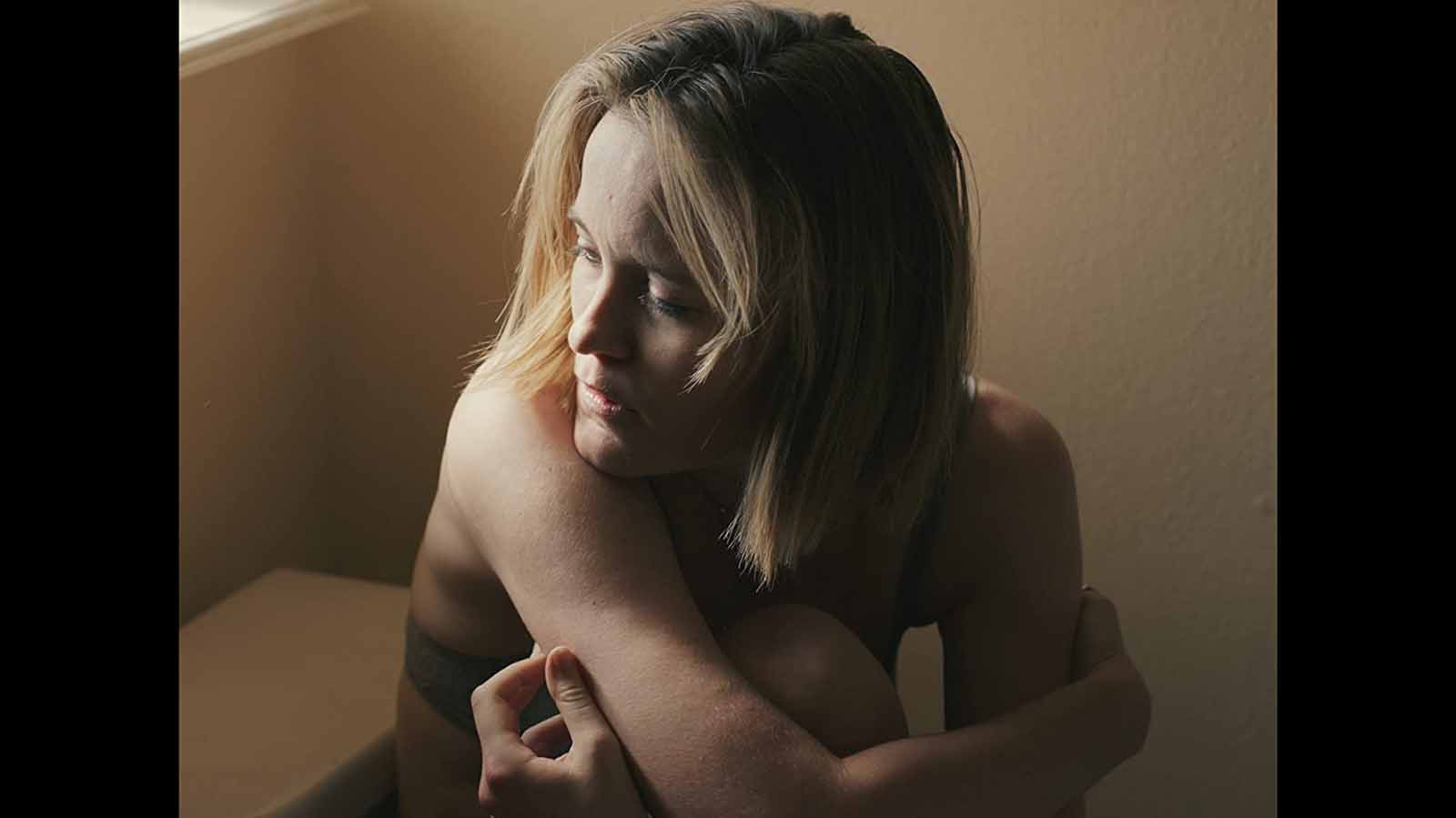
Who would compose the soundtrack of your life?
I think my composers, Maesa Pullman & Dalal Bruchman. They have been with me throughout this creative journey and they are so talented it would just make sense! You can check out Maesa’s new album Death of the Machine here and the critically praised Indigo Valley score by Mease & Dalal here.
What advice would you offer your younger self?
Be fearless. Don’t give up. Time is precious!



